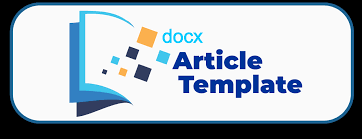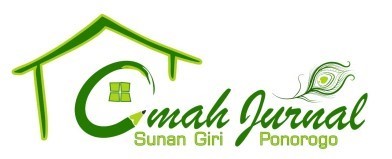Empowering Students Through Increasing Santriprenuer Knowledge
DOI:
https://doi.org/10.37680/amalee.v5i2.5256Keywords:
Asset-Based Community Development, Empowering, SantripreneurAbstract
Islamic boarding schools are required to be agents of development, playing an active role in contributing to and transforming the field of economic empowerment and the quality of their resources. Many Islamic boarding schools have adapted and transformed into institutions that participate in economic empowerment efforts, but the programme only involves motivators and target groups without the involvement of the students, both cognitively and in terms of action. Thus, students must be empowered. Among the skills that students should be prepared with are those that will enable them to support the pesantren's economy and also add value for them when they return to society. The objective of this assistance is to enhance the understanding and awareness of students and pesantren on the significance of the creative industry for the advancement of pesantren and as a precursor for students after graduating from these educational institutions. Therefore, the research team/servant and the pesantren together explore the potential or assets that they have, develop appropriate programmes, and also evaluate the implemented programmes. The ABCD approach is a service methodology employed in this mentoring programme. This service technique is broadly divided into five stages: (1) Identification of community strengths; (2) Asset mapping of the community, (3) Planning the form of the mentoring programme; (4) programme implementation; (5) monitoring and evaluation (M&E) is conducted using the Most Significant Change (MSC) technique.
References
Abdurrahman, M. (1997). Islam Transformatif. Penerbit Pustaka Firdaus.
Aziz, J. A. (2018). Pesantren: Genealogi, Dinamika, dan Nasionalisme. IQ (Ilmu Al-qur’an): Jurnal Pendidikan Islam, 1(01), 137–153. https://doi.org/10.37542/iq.v1i01.11
Azra, A. (2012). Pendidikan Islam: Tradisi dan Modernisasi di Tengah Tantangan Milenium. Kencana Prenada Media Grup.
Azra, A. (2020). Membebaskan Pendidikan Islam. Kencana.
Dhofier, Z. (1994). Tradisi Pesantren. LP3ES.
Fathoni, M. A., & Rohim, A. N. (2019). Peran pesantren dalam pemberdayaan ekonomi umat di Indonesia. 2, 8.
Fikri, K., Hariyanti, S. A., & Iqbal, M. (2016). Pendampingan Pengembangan Produk dan Pemasaran Divisi Kerajinan Santri Pondok Pesantren Al-Khoirot Malang. 4.
Geertz, C. (1981). Abangan, Santri, Priyayi dalam Masyarakat Jawa. Pustaka Jaya.
Ghofirin, M., & Karimah, Y. I. (2017). Pengabdian pada Masyarakat Pondok Pesantren Qomaruddin Desa Bungah Gresik Kewirausahaan Santri. 1(2), 6.
Hasan, M. (2015). Inovasi dan Modernisasi Pendidikan Pondok Pesantren. Karsa: Journal of Social and Islamic Culture, 23(2), 296–306. https://doi.org/10.19105/karsa.v23i2.728
Maksum, A. (2015). Model Pendidikan Toleransi di Pesantren Modern dan Salaf. 03, 28.
Noer, D. (1980). Gerakan Modern Islam di Indonesia 1900-1942. LP3ES.
Rickles, M. C. (2010). Sejarah Indonesia Modern 1200-2008. PT Serambi Ilmu Semesta.
Sahriansyah, S., & dkk. (2013). Sekelumit Sejarah Pendidikan Islam di Indonesia. IAIN Antasari Press.
Supriyanto, S. (2011). Pemberdayaan ekonomi komunitas pesantren dalam perspektif Pendidikan ekonomi (studi multi situs di Pesantren Sidogiri Pasuruan dan Pesantren Parasgempal Banyuwangi Jawa Timur). Universitas Negeri Malang.
Syafe’i, I. (2017). Pondok Pesantren Lembaga Pendidikan Pembentukan Karakter. Al-Tadzkiyyah: Jurnal Pendidikan Islam, 8(1), 61. https://doi.org/10.24042/atjpi.v8i1.2097
Wahid, A. (2001). Menggerakkan Tradisi; Esai-Esai Pesantren. Lkis.
Wahidah, E. Y. (2015). Studi Implementasi Tradisionalisasi dan Modernisasi Pendidikan di Pondok Pesantren. 24.
Yasmadi, Y. (2005). Modernisasi Pesantren. Ciputat Press.
Downloads
Published
How to Cite
Issue
Section
License
Authors who submit manuscript retain its copyright and grant Amalee right of first publication licensed under a Creative Commons Attribution-ShareAlike 4.0 International License (CC BY-SA 4.0) that allows others to access (search, read, download, and cite), share (copy and redistribute the material in any medium or format) and adapt (remix, transform, and build upon any material) the work for any lawful purpose, even commercially with an acknowledgement of the work's authorship and initial publication in Amalee: Indonesian Journal of Community Research and Engagement.














